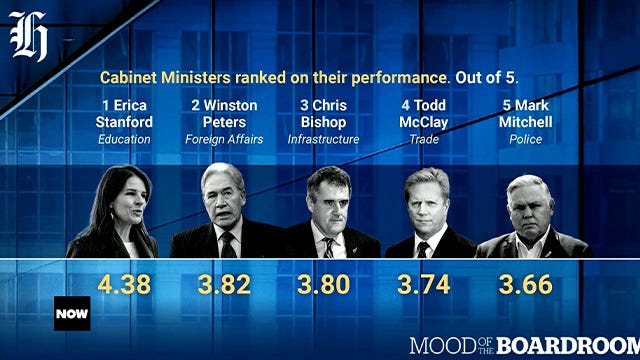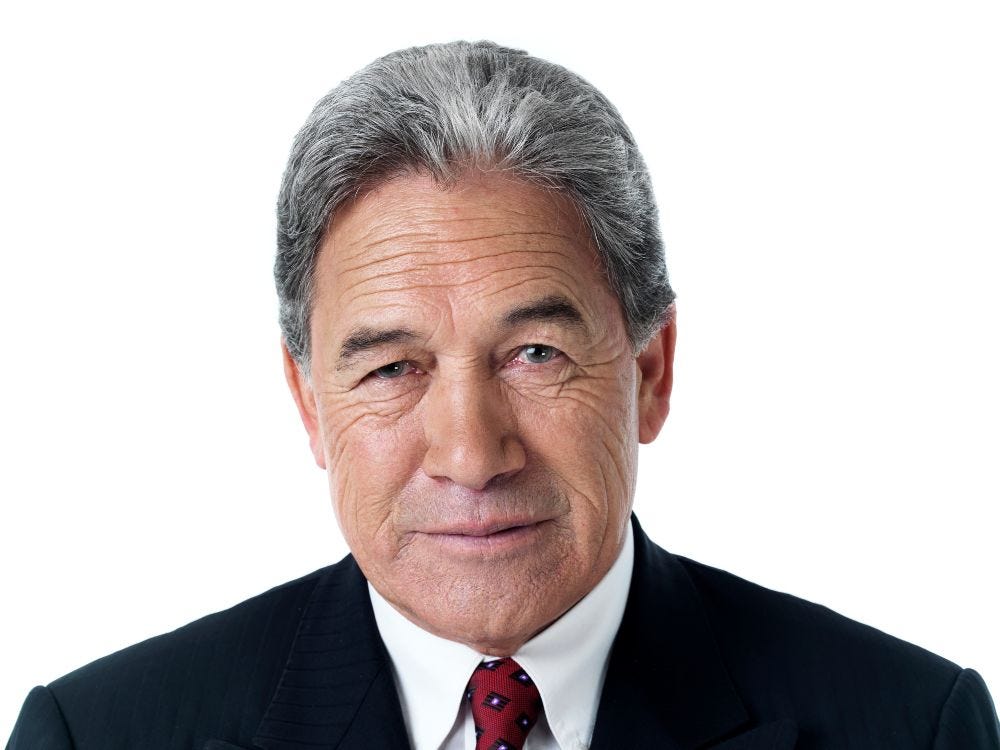Mood of the Boardroom
My take on the top 10
When I saw the results of NZME’s latest Mood of the Boardroom, I’ll admit there were some surprises. Business leaders clearly rate some ministers higher than others, but whether that aligns with the reality on the ground is another question. So here’s my take on the top 10 performers, according to the CEOs and executives polled.
1. Erica Stanford (Education) – 4.38/5
Top of the list was Education Minister Erica Stanford, and honestly, I didn’t expect her to take out first place. To her credit, she’s articulate, quick on her feet, and far sharper in interviews than Luxon, who still struggles to answer simple questions. Her recent $413m investment in school infrastructure certainly gave her some momentum. But there are lingering questions over her stance on race-based policies in education and her broader approach to immigration. She’s polished, yes, but still has to prove she can deliver long-term change.
2. Winston Peters (Foreign Affairs) – 3.82/5
Seeing Winston Peters in second place doesn’t shock me – though in my opinion he should have ranked higher. At 80 years old he’s still razor sharp, a rare politician with his finger on the pulse and the guts to speak plainly. He’s consistent on mass immigration, tough on woke ideology, and refuses to take nonsense from the media. In an era where too many MPs are afraid of offending, Peters still speaks directly to the concerns of everyday New Zealanders.
3. Chris Bishop (Infrastructure) – 3.80/5
There’s been chatter about Bishop as a future National leader, but I’m not convinced he’s ready yet. Nicola Willis may publicly defend Luxon, but the truth is many National voters are suffering buyer’s remorse. Luxon’s pitiful 2.96/5 score says it all. Bishop has the energy and ambition, but does he have the leadership instincts? I’m not so sure – though with the way things are going inside National, his time may come sooner than expected.
4. Todd McClay (Trade) – 3.74/5
McClay has been busy, but results matter more than frequent flyer miles. His recent trip to the United States – after Trump’s 15 percent tariff hit New Zealand exports – didn’t move the needle. He tried, he fronted up, but Washington didn’t budge. At least he was proactive, which is more than can be said for many…








